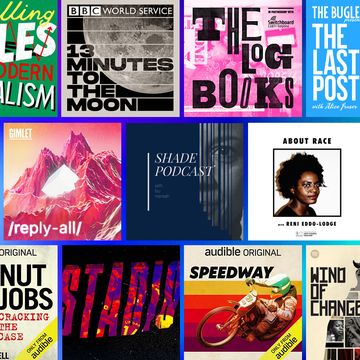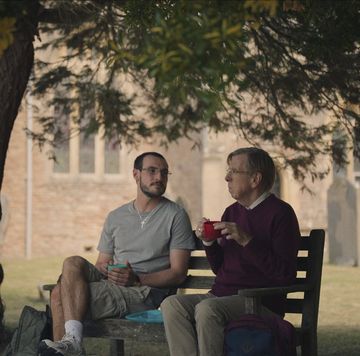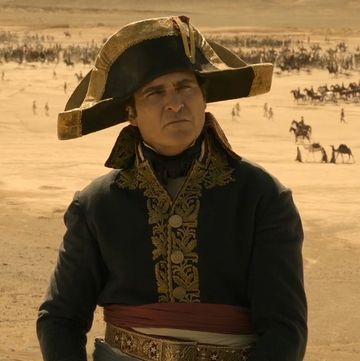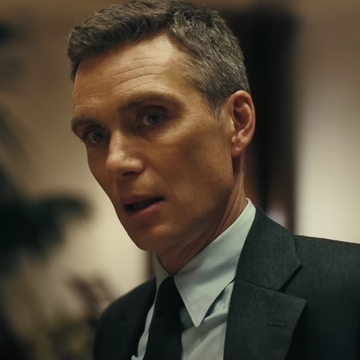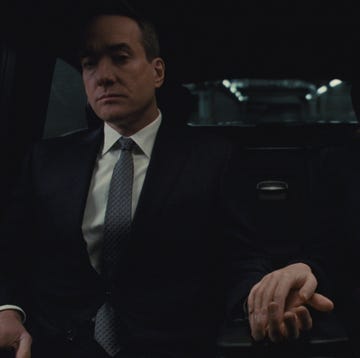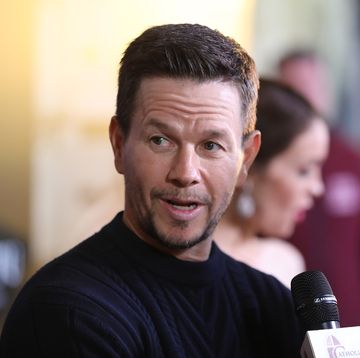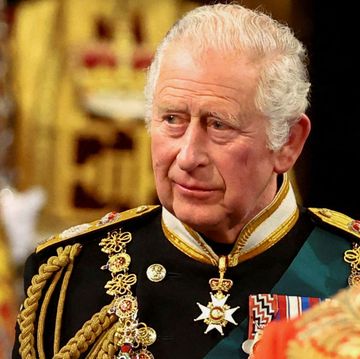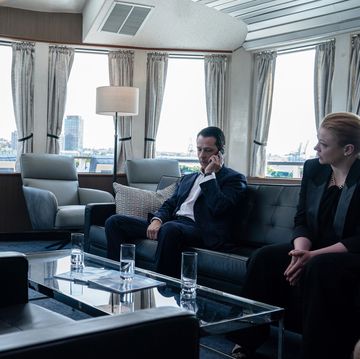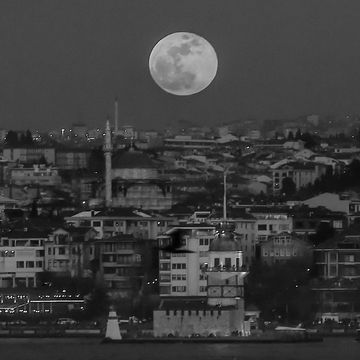When we last left the world of Narcos—our world—we witnessed DEA agent Javier Peña (played with potent world-weariness by Pedro Pascal) hanging up his crime-fighting boots for good. He had plenty of reasons to take a bow; Pablo Escobar was dead, the Medellín and Cali Cartels had been vanquished, and Colombia's cocaine empire had gone to dust. But there's no feeling of victory, no sunset ride for a hero agent—only the quiet resignation that the so-called "drug war" he'd been fighting was a never ending one, in part because his own bosses in the United States government seemingly had no interest in ending it.
That sense of futility is palpable throughout Narcos: Mexico, now streaming on Netflix, which pulls the show's timeline all the way back to 1980 to illustrate how it all began. Diego Luna stars as Miguel Ángel Félix Gallardo, founder of the Guadalajara Cartel and the former boss of a guy you may have seen in the news lately. Chasing him is Enrique "Kiki" Camarena (Michael Peña), a DEA agent at a time when, as the show points out, there were more female officers in the NYPD than agents in the DEA. As their paths intersect, the real beneficiaries of the narco underworld—on both sides of the border—come into better focus.
It's the series' most biting season yet. And for Luna, who was born and raised in Mexico, the story is an ugly, but important one.
"We have to talk about this period of time," he tells me. "It’s crucial to understand why we’re reading what we are reading today."
Luna talked to Esquire about playing the "Rockefeller of Marijuana," how drugs and violence have reshaped his country, and what needs to be done to fix it.
He was initially reluctant to accept the role.
It's one of those times where my first impulse as an actor is to say no. Let's get out of this, let's escape as soon as possible before they even work out a deal. I've seen many efforts of telling the story of these people and failing badly. You have an even bigger responsibility, because behind these stories there is a lot of loss, and pain. You’re talking about people that lived this 30 years ago—it’s not that long, you know? But [showrunner Eric Newman] said to me, "Your voice is important." And when I realised that, and that I was going to have a chance to actually be involved in what we were doing and the story we were telling and its importance, I said "Okay, okay, I'll join."
Finding information about Félix Gallardo was not easy.
Growing up in Mexico, you have Caro Quintero, you have Amado Carrillo, you have El Chapo, all these names, these characters that people think they know better than anyone. [Gallardo] was much more of this discrete guy ... He understood the value of discretion. It was kind of cool to actually have to go back and do research to find out exactly who he was.
He sees his character as another victim in the drug war.
To me the most important part to recreate a character is to think about the context he was living in, and try to understand. It's very important to not talk about things as if they were black and white, that rhetoric is getting us to a very polarised world. No one is just "bad"—love, jealousy, ambition, regret, all those things are there, and they have reasons, you may not agree with them, but as an actor you have to understand those reasons in order to portray a character. You also understand that in this show, the lead is not Kiki Camarena, I'm not the lead, the lead in this story is cocaine, and how cocaine gets to you, and the system created here. They are victims of this system.
He blames militarisation for making the violence in Mexico worse.
The big part of recreating Mexico in the 80s is the sadness that comes to me, remembering how free the Mexico that I grew up in was, and how it is not the Mexico my kids are growing up in. It has changed because of this violence, because how long this violence has been ramping up, and in the last 12 years since [former Mexican president] Felipe Calderón decided to have a frontal war with drug trafficking in Mexico. Things just got out of control because there was no strategy behind it, and it's clearly a war we are all losing. It makes me very sad to have to accept that that is my country.
Drugs need to be treated as a matter of public health.
We think, "Oh, the drug dealers are violent because they are putting drugs in our pockets." No, it's the other way around. The battle is over demand. There's a gigantic market around the world—in the States, probably the biggest—and the moment there is a market, there is going to be a supplier. We have to see this as a health issue. And as soon as we start talking about demand, we can start accepting that it is an issue that belongs to all of us because the market is everywhere. If we don't try to fix it together, it will never get fixed.
Given our current border tension, this season is especially important now.
One thing to me that is clear is that there are criminals participating on both sides. And we have to accept that. We have to accept, for this structure to exist, every level of power is involved, and this corruption has got to both sides of the border. I wish when the series ends, people will start to ask themselves, "Why are young kids in countries like Mexico willing to join these organisations?" What pushes them there, you know? Because if we start analysing the issue from a different perspective, we are part of the issue.

Nate Erickson is the senior lifestyle editor for Esquire.com. He covers food, drink, travel, technology, and all other lifestyle topics.



